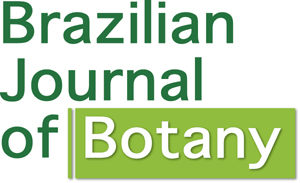This is the first study of reproductive biology and cytology carried out with Hypericum brasiliense, a species with medicinal properties and potential agronomic interest. Three populations of H. brasiliense collected at Southeastern Brazil were studied. The results indicate that H. brasiliense is preferentially allogamous, self-compatible, facultative apomitic and anemophilous. Male sterility was observed in about 50% of individuals from the three populations. Anatomical studies evidenced structural abnormalities in anthers of male sterile flowers, showing enlarged tapetal cells and thick secretion deposits on the tapetal cell surfaces that may cause nutritional deficit for pollen mother cells. In cytogenetic studies several haploid chromosome numbers were observed like n = 4, 8, 9, 11, 16 and 17, including the presence of multivalents and micronuclei in tetrads, indicating the occurrence of abnormalities in the meiotic process of H. brasiliense. Despite these meiotic abnormalities the pollen viability and in vitro pollen germination rate observed in fertile flowers may be considered high. The diploid chromosome number 2n = 16 was observed, and the chromosomes in metaphase were small and similar. Fluorochrome staining techniques using DAPI and CMA3 were applied, with no positive bands observed.
anatomy of anthers; apomixy; irregular meiosis; male sterility




